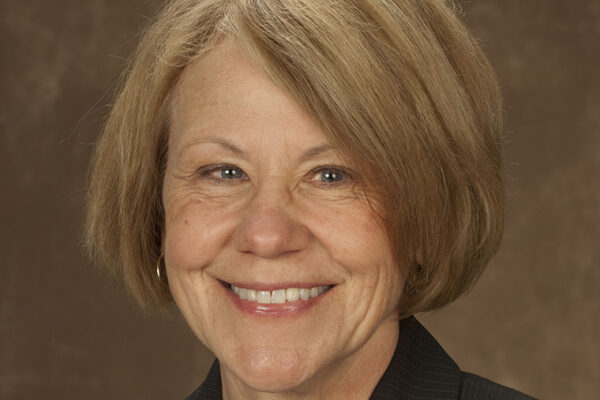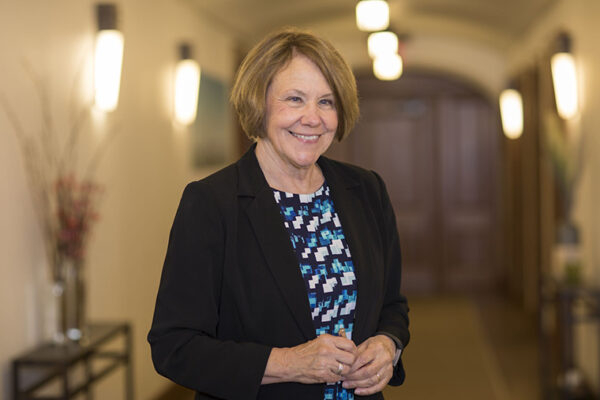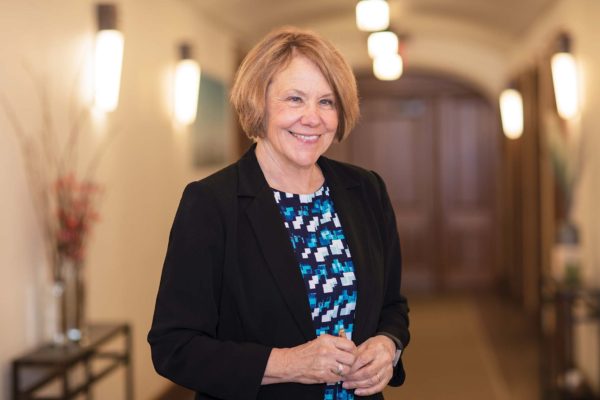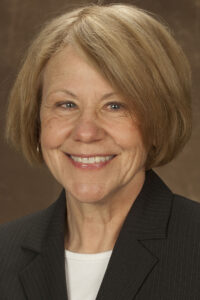
Barbara A. Schaal, dean of the faculty of Arts & Sciences and the Mary-Dell Chilton Distinguished Professor of Biology at Washington University in St. Louis, has announced her intention to step down as dean by the end of the 2019-20 academic year, according to Chancellor-elect Andrew D. Martin.
Schaal, a world-renowned evolutionary plant biologist and a well-respected leader inside and outside the university, has served as dean since Jan. 1, 2013, when she succeeded Gary S. Wihl, the Hortense & Tobias Lewin Distinguished Professor in the Humanities in Arts & Sciences.
“Washington University’s Arts & Sciences stands on a solid foundation thanks to Dean Schaal’s leadership and guidance over the years. I am grateful that we will continue to benefit from her wisdom throughout the coming academic year and after, when she returns to the biology department,” Martin said.
“Finding a successor for Dean Schaal will be a challenge given her tremendous leadership of the college, though I am confident we will continue to build upon the trajectory of excellence she has helped establish in Arts & Sciences.”
A search committee will be established and begin its work by the fall 2019 semester.
“It has been an honor to serve as dean and to work alongside such tremendous faculty, staff and students. I am looking forward to another year of supporting our many exciting initiatives, and I also look forward to following all of the discoveries and accomplishments of the Arts & Sciences community for a long time to come,” said Schaal, who will rejoin the biology faculty after a yearlong sabbatical.
As dean of the faculty of Arts & Sciences, Schaal leads more than 40 departments, programs and centers, as well as the undergraduate college, the Graduate School and University College, the continuing education division.
One of her first major initiatives as dean was to relaunch the Department of Sociology in 2014, 25 years after the university had closed the department. Today, with nine full-time faculty and a handful of affiliated professors and postdoctoral researchers offering 27 home-based undergraduate courses, the department is thriving.
She has also worked to realize a number of key priorities for Arts & Sciences identified by a three-year faculty-led planning process. One is Driving Discovery, an ambitious multiphase project to transform teaching, research, faculty and facilities in the physical sciences.
Among the Driving Discovery goals that have been met are the renovation of Bryan Hall into a state-of-the-art facility for the Department of Chemistry and the recruitment of world-class faculty, including William Tolman, the William Greenleaf Eliot Professor of Chemistry.
Other key faculty Schaal recruited include Jonathan B. Losos, an internationally renowned scholar in the field of evolutionary biology, who rejoined the biology department in 2017 after more than 10 years at Harvard University. He is the inaugural William H. Danforth Distinguished University Professor and director of the Living Earth CollaborativeTM, a center for biodiversity that brings together Washington University, the Missouri Botanical Garden and the Saint Louis Zoo.
“Her commitment to realizing the full promise and potential of all the academic disciplines across Arts & Sciences has been critical to advancing not just the school, but also the university as a whole.”
Provost Holden Thorp
She also helped strengthened Women, Gender, and Sexuality Studies and African and African-American Studies by elevating the programs into full departments in 2015 and 2016, respectively.
In addition, she supported the development of an interdisciplinary journal, The Common Reader, under the leadership of Gerald Early, the Merle Kling Professor of Modern Letters, and helped revitalize the Center for the Humanities under the leadership of Jean Allman, the J.H. Hexter Professor in the Humanities.
Also during her tenure, Arts & Sciences surpassed its campaign goals and raised $290 million, including more than $93 million for scholarships, in the university’s Leading Together: The Campaign for Washington University. As part of the campaign that ended June 30, 2018, Arts & Sciences also created 34 new professorships to help recruit outstanding faculty.
Schaal also oversaw a period of growth of the Arts & Sciences faculty, increasing its size and diversity.
“I am grateful for Barbara’s extraordinary service as dean. She has provided strong, sound judgment, a clear vision and stable leadership to Arts & Sciences,” said Provost Holden Thorp. “Her commitment to realizing the full promise and potential of all the academic disciplines across Arts & Sciences has been critical to advancing not just the school, but also the university as a whole.”
Committed to science as a public good
Schaal joined the Department of Biology faculty in 1980 as associate professor from The Ohio State University. She became a full professor in 1986 and served as department chair from 1993-97. She has held a joint position as professor of genetics in the Washington University School of Medicine since 1994.
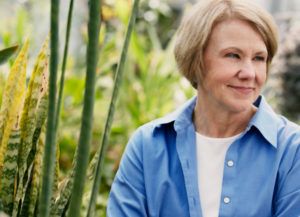
She was named the Spencer T. Olin Professor in Arts & Sciences in 2001 and the inaugural recipient of the Mary-Dell Chilton Distinguished Professorship in 2009.
Schaal, who has been widely recognized for her pioneering research, was among the first plant scientists to use molecular biology-based approaches to understand evolutionary processes in plants, and she has worked to advance understanding of plant molecular systematics and population genetics. Her most recent work included collaborating with students and peers to research the evolutionary genetics of plants in hopes of enriching crops such a cassava — the sixth-most important food crop in the world — and rice.
Her expertise and commitment to science as a public good have led to numerous leadership positions within the U.S. government and the world’s leading scientific organizations.
A member of the National Academy of Sciences (NAS) since 1999, she was elected as the academy’s first woman vice president in 2005. She won re-election to the four-year post in 2009, the same year President Barack Obama appointed her to the President’s Council of Advisors on Science and Technology, serving until 2017.
Schaal was one of three U.S. science envoys for 2012-13 appointed by then-Secretary of State Hillary Clinton to advise the White House, the U.S. Department of State and the U.S. scientific community.
NAS appointed her chair in 2013 of a 24-member advisory group on the 2010 Deepwater Horizon oil spill in the Gulf of Mexico, and she chaired the National Research Council’s Division on Earth and Life Studies.
In 2016, Schaal served as president of the American Association for the Advancement of Science, the world’s largest general scientific society.
A former president of the Botanical Society of America and of the Society for the Study of Evolution, Schaal serves on the scientific advisory committee for the Supporters of Agricultural Research Foundation.
Among her leadership roles at the university, Schaal directed Tyson Research Center, overseeing operations of the 2,000-acre environmental research station some 20 miles southwest of the Danforth Campus, from 2011-13. She served on numerous university committees, including the Academic Planning Committee in Arts & Sciences, the Curriculum Implementation Committee and the University Affirmative Action Committee.
Born in Berlin, Schaal grew up in Chicago and earned a bachelor’s degree with honors in biology in 1969 from the University of Illinois at Chicago. She earned a master’s degree in 1971 and a doctorate in 1974, both in population biology from Yale University.
Schaal has received numerous prestigious awards, including a Guggenheim Fellowship, the Key Award from the American Genetics Association and, most recently, the American Institute of Biological Sciences Distinguished Scientist Award for 2011-12.
At the university, where she regularly involved undergraduates in her labs and advised 36 PhD students, she has received the Founders Day Distinguished Faculty Award, the Arthur Holly Compton Faculty Achievement Award and the Graduate Student Senate Outstanding Faculty Mentor Award.
